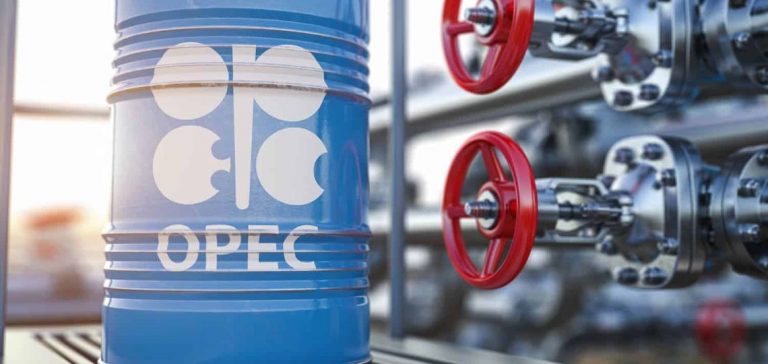OPEC+ remains firmly committed to stabilizing the global oil market, stated Suhail al-Mazrouei, Minister of Energy of the United Arab Emirates (UAE), during the Gulf Intelligence Energy Markets Forum in Fujairah. This statement comes as the group’s key advisory committee meets to assess members’ compliance with established quotas.
The United Arab Emirates is one of the 22 partners in OPEC+, a consortium aiming to balance oil supply and demand to maintain stable prices. Al-Mazrouei emphasized the importance of cohesion within the group, stating: “We are 22 diverse partners, but our goal is one, which is to achieve this balance.” He added that the group’s solidarity is crucial in reaching this common objective.
OPEC+ has already implemented several production cut cycles, including a voluntary reduction of 2.2 million barrels per day (b/d) by eight countries, including the UAE. The group plans to gradually taper this cut in December. However, falling oil prices pose significant challenges, with many forecasters predicting a market surplus in 2025, due to demand growth potentially lagging behind the production expansion from non-OPEC+ producers.
Oil prices remain stuck in the low $70 per barrel range, delaying a planned production cut initially set for October. According to Platts, a subsidiary of S&P Global Commodity Insights, Dated Brent was assessed at $75.38 per barrel on October 1, up 3.41% on the day, due to rising geopolitical tensions between Israel and Iran.
The OPEC+ Joint Ministerial Monitoring Committee, which includes Al-Mazrouei, will meet online on October 2 at 12:00 UTC to evaluate members’ compliance with quotas and review market outlooks. The full alliance is set to meet in Vienna on December 1 to discuss future strategies.
In the long term, Al-Mazrouei expects continued growth in global oil demand and emphasized that the industry must keep pace with investments to meet the world’s growing needs. The latest OPEC World Oil Outlook projects demand reaching 120.1 million b/d by 2050, compared to 102.2 million b/d in 2023, with no peak demand expected during the forecast period. The study states that the industry will need to invest approximately $17.4 trillion to meet this demand.
This projection contrasts with assessments from other forecasters, including the International Energy Agency (IEA), which reiterated in September its view that oil demand would peak before the end of the decade. Al-Mazrouei expressed his concerns over the insufficient investment level to meet the world’s medium- to long-term requirements, stating: “If I am worried about one thing, it’s the investment level that I don’t see coming to meet the medium- to long-term requirements for the world.”
The minister also highlighted the importance of investments not only upstream but also downstream, including refining and trading infrastructures. “The global population is expanding. Demand is solid. Without investments – not just upstream, but also midstream, refineries, and trading – we will face a chokepoint,” he added.
These statements highlight the challenges facing the global oil industry, balancing the need to stabilize the market and the crucial importance of investments to ensure sufficient supply in the long term. OPEC+ continues to navigate a complex environment marked by geopolitical tensions and fluctuating market dynamics, while striving to maintain its influence on the global oil market.






















